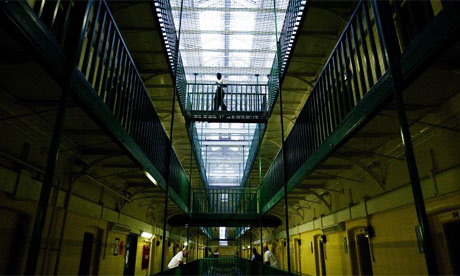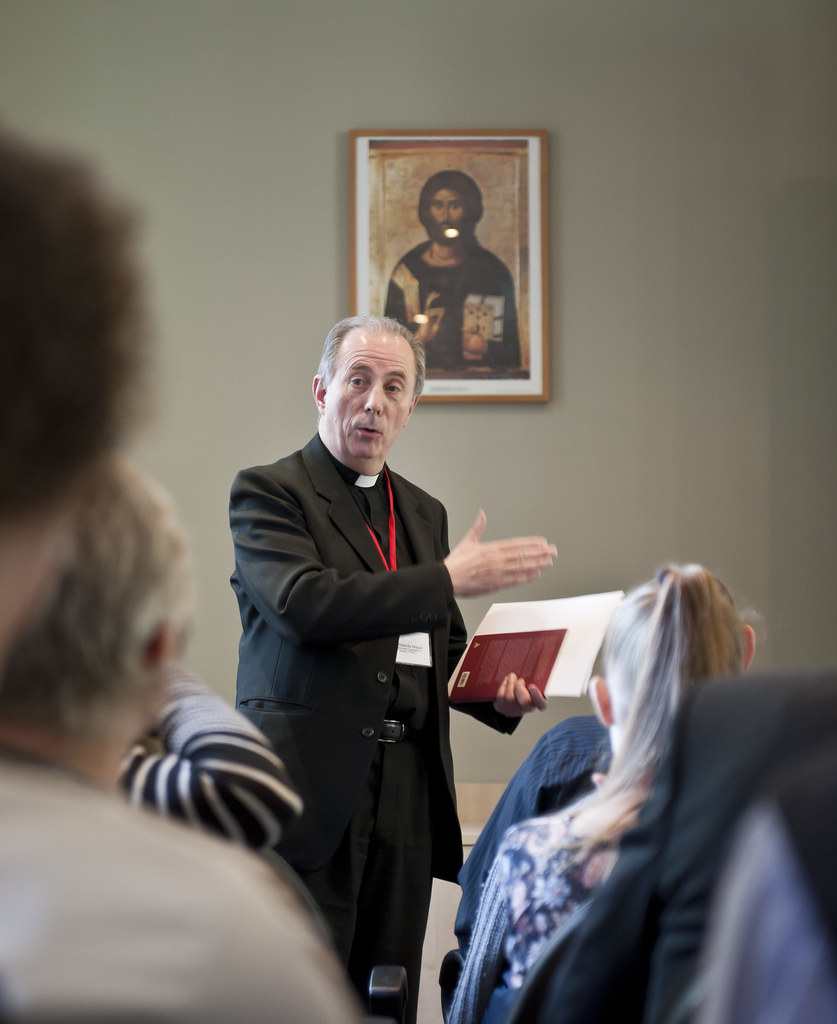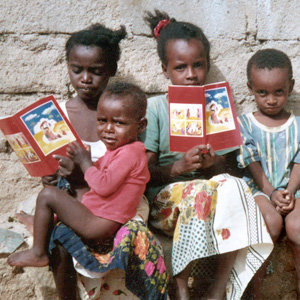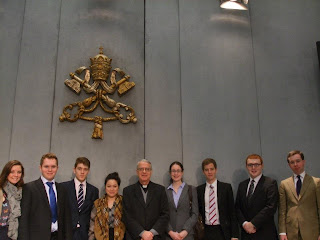(Photos to follow shortly)
The train ride to Rhyll was reminiscent
of our journey to Drumalis at the beginning of the year. People were tired but
sociable, curious about what the retreat would entail and speculation about the
next phase in all our lives was rife.
From the train station we took
taxis further into the middle of nowhere, eventually arriving at St Beuno’s
Jesuit retreat centre. On route, the taxi driver had reassured us that, yes he
did in fact collect people who had survived their stint of silence.
We met Fr Dave Stewart SJ and
Eric, a seminarian from Texas currently studying in Rome, who would be leading
our retreat. After a tour and surprisingly good dinner we were relieved to find
out that we were not doomed to miss out on the opening ceremony of the London
Olympic Games. We gathered in the AV room to watch the spectacle unfold and
fell into bed that first night exhausted from a day of travelling and apprehensive
of our ability to shut up for 3 whole days.
Each morning began with
breakfast, like all other meals this was taken in silence, before a one-to-one
spiritual direction session with either Fr Dave or Eric. Lunch was served
around midday and the afternoon was ours to fill as we pleased before Mass
followed by dinner in the evening.
We were each given different
passages from the Bible to read and pray and encouraged to consider Ignatian
spiritual exercises to help us.
The beautiful grounds of St
Beuano’s certainly provided a peaceful atmosphere in which to contemplate the
many experiences this internship has given us. Manicured lawns encircled scented
rose bushes, with gravelled paths leading to a labyrinth and prayer garden as
well as fields and a small forest in which the rock chapel nestled on top of
the hill.
The complex itself included an
art room with loads of resources (some of us made better use of these than
others… Daniel’s clay farmer with a sheep, Michaela’s clay swan candle holder
and Marie’s watercolour paintings in particular) several chapels and prayer
spaces, meeting rooms, a dining room and accommodation for over 60 people.
Most of the interns had wisely
been given accommodation away from the main building; Michaela, Marie and I
were in a cute stone cottage whilst Dom and Matthew were banished to the other
side of the (badger ridden) forest to a cottage on the ‘main’ road.
This provided us all with the opportunity
to be sociable as well as to take time out for ourselves. The silent nature of
the retreats at St Beuno’s created a deep sense of calm and tranquillity that
seemed to either seep from or be absorbed even by the study grey stones of the
main building.
Being quiet was hard. The
Olympics were on and leaving the buzz of London to be submerged into the quietness
of this retreat centre in North Wales felt somewhat unnatural and uneasy. Maybe
those ‘retreatants’ who do the hard-core 30 day or 3 month retreats get into more
of a routine and are able to entertain themselves better, they didn’t look that
happy when we saw them at meal times or Mass but their inner peace must have
been strong.
On the last night Charles, Fr
Dave and Eric joined us all in the girls’ cottage for some drinks and we
debated the night away in heated and determined tones, until we realised what
time it was and that we had to be up for a train in a few hours!
The retreat was a fitting end to
an incredible year, which has not been without it’s challenges but which has
also been absolutely invaluable in the breadth and depth of the life lessons we’ve
all learned along the way. It put prayer
back firmly at the centre of our day to day lives and forced us all to take
some time out amidst a really hectic few weeks for us all.
Thank you to Charles for
accompanying us and to Fr Dave and Eric for being our spiritual directors at St
Beuno’s, yet another interesting and unique experience to bring the year to a
close.
































